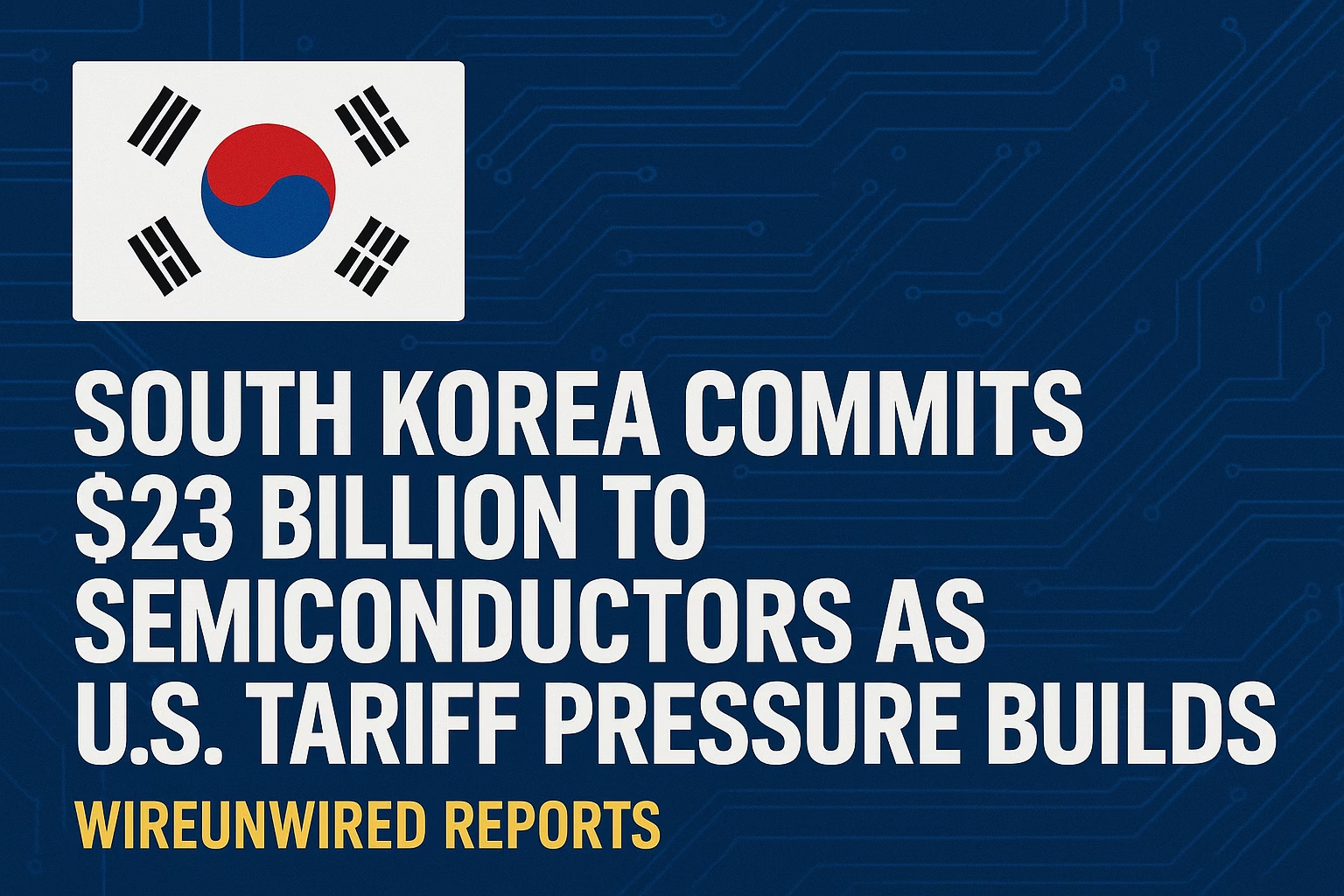In 2024 alone, semiconductors accounted for 21% of South Korea’s exports, generating $141.9 billion in revenue. With both China and the United States as key markets, South Korea finds itself walking a delicate line between economic dependence and political friction. Now, with the U.S. semiconductor tariffs planned under President Trump’s administration, Seoul is responding with urgency.
Also Read :TSMC Holds Stakes in Over 6 Major Semiconductor Companies: Intel Just the Latest Addition.
South Korea Semiconductor support package
The South Korean government has announced a ₩33 trillion (~$23 billion) semiconductor support package aimed at reinforcing the semiconductor industry. This semiconductor support package includes low-interest loans, R&D subsidies, and infrastructure upgrades in chip manufacturing hubs like Yongin and Pyeongtaek. Companies like Samsung Electronics and SK Hynix, key players in the South Korea chip manufacturing sector, are expected to benefit directly.
💸 What’s in the $23B Package?

| Component | Details |
|---|---|
| Low-Cost Loans | Offered through state-run banks to chipmakers like Samsung, SK Hynix |
| Subsidies | R&D, process node upgrades, and facilities expansion |
| Infrastructure Investment | Upgrading underground power systems in Yongin & Pyeongtaek |
| Additional Support | ₩3 trillion (~$2B) aid for the automotive sector facing similar threats |
Further ,Finance Minister Choi Sang-mok has called the next 90 days critical. The government is moving quickly to strengthen its domestic industry before the proposed U.S. tariffs take effect. In parallel, Seoul plans to send a delegation to Washington to seek clarity and possibly negotiate terms regarding the impact of U.S. tariffs on South Korea’s semiconductor exports.
The support doesn’t end with semiconductors. An additional ₩3 trillion (~$2 billion) is being allocated to the auto sector, which faces similar exposure to U.S. trade actions.
As the global chip race accelerates and AI reshapes demand, South Korea is under pressure to protect its core industries without losing ground to policy shifts beyond its control.
Source :APNews
Discover more from WireUnwired Research
Subscribe to get the latest posts sent to your email.




